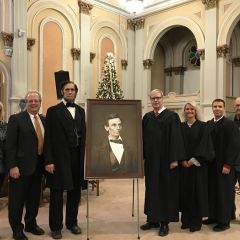CLE: Family Law Update 2018
 Join us Sept. 14 in Chicago for an in-depth look at a number of key changes to the family law arena, including the litigation updates that may impact your next client.
Join us Sept. 14 in Chicago for an in-depth look at a number of key changes to the family law arena, including the litigation updates that may impact your next client.
Family law practitioners, child law attorneys, and civil practice lawyers with all levels of practice experience who attend this seminar will better understand: how to apply the Illinois Rules of Evidence and the Illinois Code of Civil Procedure to your family law litigation case; the judicial perspective on proper pleadings; how to apply equitable remedies to a family law case; the impact of normalizing income as part of the valuation process when determining fair market value; how to calculate appropriate maintenance (and how the new maintenance statute may impact that calculation); and the importance of providing the necessary evidence in a child support hearing.



 Asked and Answered
Asked and Answered